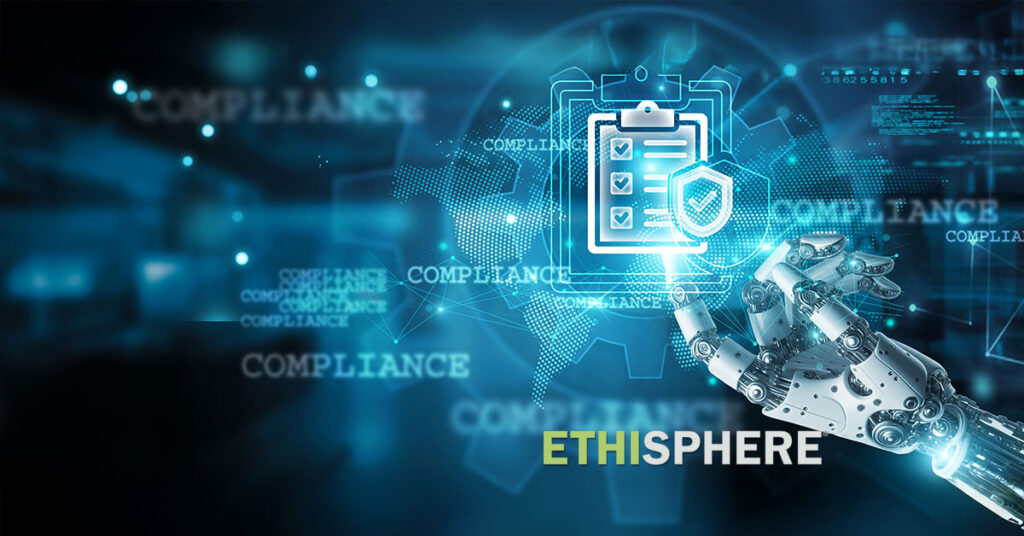In the evolving landscape of professional services, leveraging artificial intelligence (AI) is no longer optional but essential for ethics and compliance programs. Discover how AI can transform your approach from reactive to proactive, ensuring better risk management and compliance efficacy.
Why Compliance Programs Remain Reactive And The Cost Of Inaction
Many ethics and compliance (E&C) programs remain stuck in reactive mode, waiting for hotline reports, audit findings, or relying on basic metrics to generate limited insights. This reactive approach often means that issues are addressed only after they have become significant problems, leading to higher costs and more extensive damage to the organization.
Hui Chen, co-founder of CDE Advisors and the author of the original U.S. DOJ Evaluation of Corporate Compliance Programs, emphasizes that merely measuring activities such as training completion rates and misconduct reporting does not provide a clear picture of a program’s effectiveness. Instead, she advises teams to “stop measuring activity and start measuring outcomes.” Failing to define and measure true effectiveness leaves organizations vulnerable to risks that proactive measures could have mitigated.
Harnessing AI to Monitor and Investigate: Real-World Applications
Artificial intelligence offers compliance teams powerful tools to move from reactive to proactive strategies. Parth Chanda, EVP of Risk and Compliance Transformation at Case IQ, points out that AI’s most impactful applications in compliance are in monitoring and investigations. AI can detect anomalies by identifying spend patterns or behaviors that deviate from historical norms, and it can use machine learning models to prioritize risks that need immediate attention.
“AI isn’t replacing your judgment — it’s accelerating your insight,” advises Parth. By providing access to comprehensive information across the organization and pinpointing needles in the haystack of risk, AI helps compliance teams to work smarter and faster.
Overcoming Implementation Challenges in Large Organizations
Implementing AI in a large organization comes with its own set of challenges. Keith Thomas, Lead Counsel for Corporate Integrity & Compliance at FedEx Corporation, shares his experience, in which initial compliance efforts involved manually reviewing a small number of vendor payments using Excel, a method that was unsustainable and ineffective.
Keith emphasizes the importance of moving from random reviews to risk-based insights. “The biggest shift was mindset: moving from ‘let’s check 10 invoices’ to ‘let’s let the data tell us where to look,’ he says. Implementation requires aligning with other departments such as audit, procurement, and business operations, and involves building credibility through demonstrating tangible impact, like reducing risk exposure by significant percentages in a short period.
Balancing AI Innovation with Ethics and Responsible Governance
While AI offers numerous benefits, it also raises important questions about ethics and responsible governance. Hui Chen stresses the importance of accountability, asking, “Who trained the model? What’s the bias? Can we audit it?”
Ethical AI starts with ethical humans guiding it, and AI governance is emerging as a new frontier in compliance oversight. Compliance officers must ensure that AI tools are transparent, auditable, and free from biases that could lead to unethical outcomes.
Actionable Steps for Compliance Officers to Integrate AI
For compliance officers looking to integrate AI into their programs, starting small is key. Parth Chanda advises beginning with one data set or risk domain, such as T&E vendors or hotline data. Using internal data first can help teams build competence before scaling to external and predictive data.
Keith Thomas recommends partnering with internal audit teams to access the necessary data and to begin with clear, manageable questions. “Be realistic,” he says, “AI is a tool to help, but you still need powerful data analytics to start.” The journey towards AI integration is iterative, and it’s essential to build trust with results over time.
This webinar can be viewed on-demand at LINK. To check out additional upcoming webinars, please visit the Ethisphere events page at www.ethisphere.com.
To learn more about how Case IQ can help your organization transform its case management, compliance, and hotline programs, please visit www.caseIQ.com.
 4 Minutes - Read Now
4 Minutes - Read Now 







